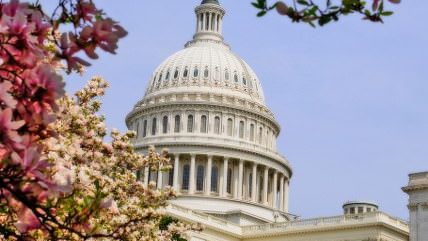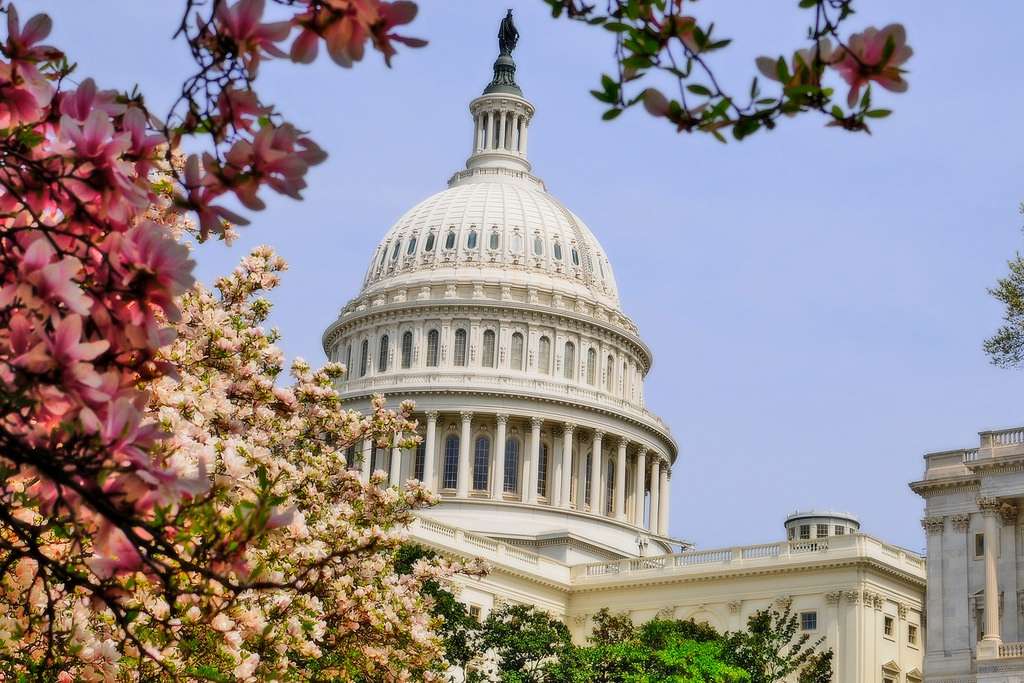Congress Has Veto Power over New Agency Regulations, But Could GOP Actually Make It Happen?
There's a reason you've probably never heard of the Congressional Review Act.


In our thoroughly gridlocked final two years of Barack Obama's presidency, what we're likely to get publicly is a whole lot of populist rhetoric that goes nowhere, particularly during tonight's State of the Union Address (Peter Suderman noted the empty signaling of Obama's proposed tax hikes earlier today).
Congressional gridlock doesn't actually stop the creation of new government rules and regulations, more's the pity. Our federal agencies have been invested with remarkable amounts of powers to create new rules and enforce them on their own, separation of powers notwithstanding. Obama has made it a point to publicize his willingness to go around Congress to enact his policies in whatever way he can manage through executive power.
Still, there is some Congressional oversight available when it comes to new federal regulations. Most Americans probably don't know about it because it never gets used. Over at The Hill, though, House Judiciary Committee Chair Bob Goodlatte (R-Va.) is hoping to bring this tool, the Congressional Review Act (CRA), to bear:
Senate Majority Leader Mitch McConnell (R-Ky.) began threatening to use the CRA to stop regulations last year, after the Environmental Protection Agency proposed a rule aimed at cutting carbon emissions from new power plants.
"That's why I, along with about 40 Republican co-sponsors … intend to file a resolution of disapproval under the Congressional Review Act to ensure a vote to stop this devastating rule," he said at the time.
While Obama can and likely will veto any efforts to undo regulations through the CRA, the threats carry more weight now that Republicans control both chambers of Congress.
Be skeptical, though. There's a reason it's hardly ever used. On the one hand, applying the act to overturn a regulation requires only a majority vote from both the House and the Senate and the votes cannot be filibustered. On the other hand, Congress has to act within 60 days after a regulation is enacted, and the president can veto it. So really, unless one party has a supermajority in Congress or the president somehow has a runaway agency creating new regulations (or he changes his mind), nothing is likely to happen. The act has only been successfully used once to repeal an ergonomics regulation created by the Department of Labor in 2001. Invoking the CRA may, ultimately, be as much about signaling as Obama's proposed tax hikes:
If nothing else, using the Congressional Review Act will put Democrats on record as to whether they stand with the president on certain policies.
"The desire of Democrats to distance themselves from the president is only beginning to grow," [a senior Sen. James] Inhofe aide said. "One of the best ways they can distance themselves is by voting to overturn bad regulations."
Editor's Note: As of February 29, 2024, commenting privileges on reason.com posts are limited to Reason Plus subscribers. Past commenters are grandfathered in for a temporary period. Subscribe here to preserve your ability to comment. Your Reason Plus subscription also gives you an ad-free version of reason.com, along with full access to the digital edition and archives of Reason magazine. We request that comments be civil and on-topic. We do not moderate or assume any responsibility for comments, which are owned by the readers who post them. Comments do not represent the views of reason.com or Reason Foundation. We reserve the right to delete any comment and ban commenters for any reason at any time. Comments may only be edited within 5 minutes of posting. Report abuses.
Please to post comments


So it sounds like passing the Act was pointless. Congress always had the power to review regulations, then pass laws striking them down, as long as the president signed it. Actually, with the 60 day time limit, it sounds like the Act went in the wrong direction and could possibly set a new regulation in stone.
It sounds like the act allows for some kind of special procedures in each house to bring the issue to a vote quickly, rather than having to navigate the normal committee process, holds, filibusters, amendments, etc.
began threatening to use
Therrrrrrrre's yer sign. "Threatening" - not actually "using".
Wake me when these assholes actually DO something to stop the leviathan. Lemme help you - you'll never wake me....
zzzzzzzzzzzzzzzzzzzzzzzzzz
No. To do so would challenge the very legitimacy of their rule. They can never admit to having made any kind of mistake because once you admit you made one mistake, how many others would you have to admit to? Why it would be total chaos!
The entire concept of a special sort of law that's magically outside of legislative review is fucking absurd.
The regulatory state is far too useful to Congress for Congress to rein it in.
Its how Congress minimizes its workload and avoids responsibility. Mainly the latter. Two of their top three priorities, as near as I can tell.